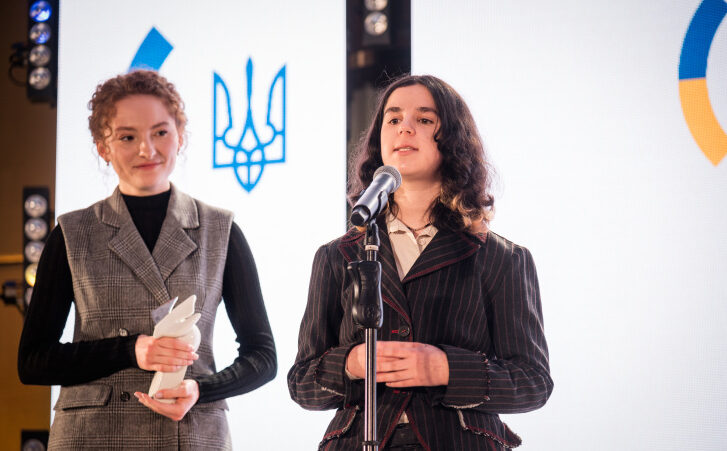
Erasmus+ and ESC: How International Participants Faced the Pandemic of Covid-19
While the EU was trying to handle the global warming problem and migration crisis, the pandemic of SARS-Covid-19 caught everyone unawares. In a few weeks, the priorities of the EU policy to partner countries completely changed. The European Union has adopted “Global Response to Covid-19”, according to which financial support for EU partner countries will grow for health and social segments, business and agriculture. All these sectors have been affected the most because of the lockdown measures. But how will the pandemic impact the educational opportunities for international students?
From 2014 until 2020, the European Commission allocated almost €15 billion for Erasmus+ programs. And over 4 million people got a chance to use this money for studying, researching, networking, volunteering. And at least 75% of scholarships were awarded to candidates from the EU partner countries. So, the first question might be about the financial support of these students. Did anything change because of the pandemic?
 Daria Capatina, the Erasmus Mundus student from Moldova, who is currently getting a Master’s degree in Denmark, said nothing had changed in this way: “We still receive monthly, in time, the same amount of financial support! As the current Covid-19 measurements have an impact on many of the students’ financial situation, for the ones who have to pay for their contracts, I know that the universities are flexible to offer alternative payment schedules for their tuition fees”. During the online meeting with members of the EU Delegation to Ukraine, Stefan Schleuning, the Head of Cooperation, asserted: “Covid-19 is the key priority. But educational programs will not be cut”. Mobility programs like Erasmus+, Erasmus Mundus, and European Solidarity Corps are priceless opportunities for many young people for both personal growth and career progress. That is the reason why many participants had decided to stay at locations of their educational programs when the WHO declared the pandemic of the Corona virus. Oleg Stoic, an ESC volunteer in Germany, reflects: “Two of the ten volunteers have left the project. However, I’m not sure that the pandemic was a real reason for this step. I didn’t plan to leave the country. I like the project and people here. Moreover, the healthcare system in Germany is better prepared for a pandemic challenge”. And Daria was also sincere: “I had to work with one of my classmates (who fortunately is my flatmate too) on a paired exam, and I thought it would be easier to do it when I am physically present. But my main reason to stay was to keep myself and the others safe”.
Daria Capatina, the Erasmus Mundus student from Moldova, who is currently getting a Master’s degree in Denmark, said nothing had changed in this way: “We still receive monthly, in time, the same amount of financial support! As the current Covid-19 measurements have an impact on many of the students’ financial situation, for the ones who have to pay for their contracts, I know that the universities are flexible to offer alternative payment schedules for their tuition fees”. During the online meeting with members of the EU Delegation to Ukraine, Stefan Schleuning, the Head of Cooperation, asserted: “Covid-19 is the key priority. But educational programs will not be cut”. Mobility programs like Erasmus+, Erasmus Mundus, and European Solidarity Corps are priceless opportunities for many young people for both personal growth and career progress. That is the reason why many participants had decided to stay at locations of their educational programs when the WHO declared the pandemic of the Corona virus. Oleg Stoic, an ESC volunteer in Germany, reflects: “Two of the ten volunteers have left the project. However, I’m not sure that the pandemic was a real reason for this step. I didn’t plan to leave the country. I like the project and people here. Moreover, the healthcare system in Germany is better prepared for a pandemic challenge”. And Daria was also sincere: “I had to work with one of my classmates (who fortunately is my flatmate too) on a paired exam, and I thought it would be easier to do it when I am physically present. But my main reason to stay was to keep myself and the others safe”.

Nevertheless, the spread of new disease made those who are in charge of universities and voluntary projects adapt the educational programs to a new reality. The WHO recommends maintaining a social distance of at least 1 meter, wear masks and gloves in public places, clean hands, and avoid crowds. These rules are pretty simple to follow and could save our life unless there is a vaccine. So, timely higher education went into online mode.
“As for me, setting aside the human/social direct contact, I did not feel any difference from the face-to-face classes, in terms of quality. Online education could replace the face-to-face one for the master’s degree students.”,– Daria said.
As for Oleg’s activity, he continues to work on reports for the NGO as a volunteer. Once a week, he visits the office under the National Healthcare Agency’s recommendations. And despite issues he faced because of the Covid-19, Oleg is confident, such initiatives as European Solidarity Corps have the future in the new world:“The organization where I work is already looking for volunteers for the next year. The ESC won’t be closed. In Germany quarantine measures ease. In three weeks we plan to set up some events for locals. I think projects alike will be developed only”.
In front of the invisible enemy named Covid-19, the authorities of states are trying to protect its people by different restrictions: some of the countries have shut the borders, others decided to set up quarantine for incoming ones for two weeks or put cameras all around to track citizens. This pandemic definitely tests modern society. Though if governments continue to fight difficulties and put efforts to look for collective decisions, this problem will be solved as many previous were done. At the same time, the European Parliament approved a bigger budget for Erasmus+ for the next period 2021-2027 to let more young people get grants for education. The financial support was tripled! And this decision is untouchable. So, despite the pandemic of the Corona virus and all the challenges that we will meet because of this – the educational sector is an everlasting priority for the EU. Honestly, it might be so for every state the government of which would like to succeed on the international scene.
Anastasiia Mirza
A journalist from Ukraine
Young European Ambassador
LATEST

Building Europe: Poland’s experience of joining the European Union and lessons for Ukraine

World Health Day 2024: My Health, My Right

EUREKA MEETS EUROPE – opportunities to develop and study. My experience

Can you wear pink in the workplace?

Go where your deepest fears lie: finding the courage to overcome gender barriers in STEM
More campaign pages:
Interested in the latest news and opportunities?
This website is managed by the EU-funded Regional Communication Programme for the Eastern Neighbourhood ('EU NEIGHBOURS east’), which complements and supports the communication of the Delegations of the European Union in the Eastern partner countries, and works under the guidance of the European Commission’s Directorate-General for Neighbourhood Policy and Enlargement Negotiations, and the European External Action Service. EU NEIGHBOURS east is implemented by a GOPA PACE-led consortium. It is part of the larger Neighbourhood Communication Programme (2020-2024) for the EU's Eastern and Southern Neighbourhood, which also includes 'EU NEIGHBOURS south’ project that runs the EU Neighbours portal.

The information on this site is subject to a Disclaimer and Protection of personal data. © European Union,